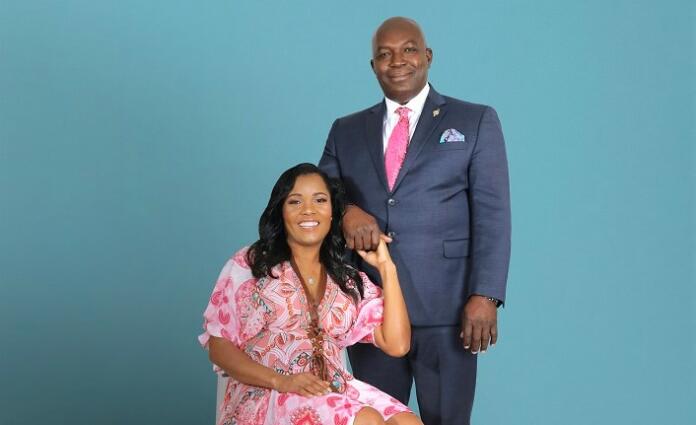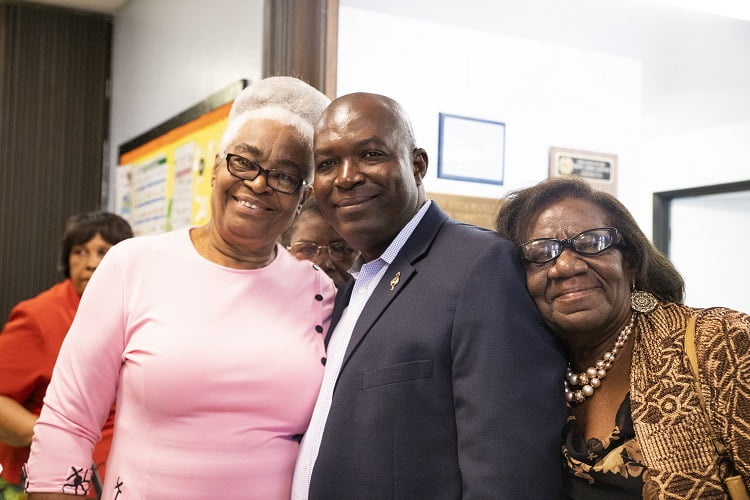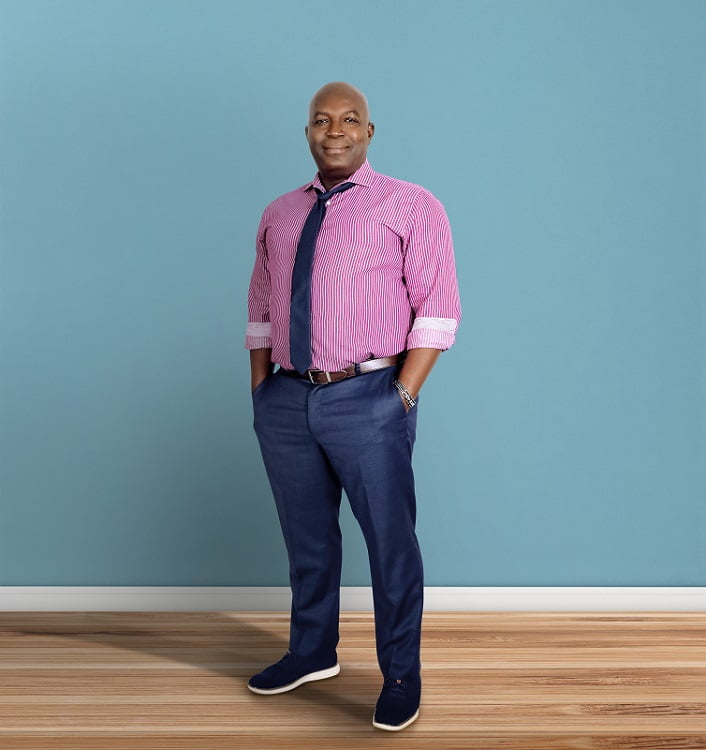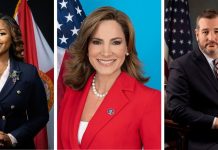
“I learned something in politics. You may have power, but don’t abuse it. You can have the majority, but you need to please the minority at the same time. What you want is compromise so everyone can be heard. You need balance in order to create stability.”
North Miami Mayor Philippe Bien-Aime is a thoughtful leader who combines a businessman’s approach to governance with a humanitarian spirit toward his constituents. He’s guided the city through and to the other side of the 2020 pandemic. Now, after eight years on the dais and two years at the helm, Bien-Aime is seeking a second term as mayor. Island Origins spoke with him about his background, civic service and plans for the future.
A Persistent Spirit
Born and raised in Port-au-Prince, Haiti, Bien-Aime became interested in government after visiting agricultural fairs with his father in his youth and interacting with the political class at these events.
While Bien-Aime was a high school student, Haiti was experiencing political turmoil. During the Jean-Claude “Baby Doc” Duvalier dictatorship, dissenting politicians were being jailed. “That’s when I started raising questions,” he said. He chose to study government and politics in college because he realized that’s how he could effect change. “When you see someone being arrested for his beliefs, that’s not right and that’s not freedom. People should be able to express themselves.”
A moment that stands out in his memory is when the government of Haiti sent many journalists into exile in 1983. Haitians were standing up and asking controversial president Duvalier to leave the country.
“I remember when the pope went to Haiti and said [that] something needs to change. President Jimmy Carter went to Haiti and did a conference about human rights,” Bien-Aime recalled. “Those two big moments made me say ‘Okay, I have to step up and be a journalist.’”
Deciding early on that he wanted to be on the side of the people, Bien-Aime studied at the National University of Haiti and later went to Lavale University in Canada to study political and social sciences. By 1995, he had moved back to Haiti, become a journalist at one of the country’s top radio stations and was a young congressional candidate. After an unsuccessful run, he headed to South Florida to be with his wife and kids.
Though Bien-Aime started his new life in South Florida working paycheck to paycheck as a security officer, his aspirational spirit would not allow him to settle. He accumulated some savings and decided to pursue the American dream, becoming an entrepreneur. By 1998 he had opened a 99-cent store. Later, he got into the car sales business, eventually opening his own dealership. All the while his focus never left politics, he said. He was giving to political leaders and engaged in political groups to empower the North Miami community. His influence had grown enough that, through campaigning and fundraising efforts, he was able to help elect the first Black mayor of North Miami.
After deciding to become even more involved, Bien-Aime ran for a seat on the North Miami city council in 2013. He won.
“For him, in this community, the people come first. That’s his passion,” said his wife, Sarah. “He’s really doing it for the people.”

He was elected vice mayor by the council during his first term. When the mayor needed to step down, Bien-Aime moved into the role of interim mayor from May to November 2015.
“He stepped forward and he served in that capacity, at the time when the city was in crisis and needed a leader,” said Leonie Hermantin, an international community development consultant and professional associate of Bien-Aime.
He promised not to run for mayor after this first term, opting to take things step by step.
“He kept his word that he was not going to run and was widely recognized and celebrated because of that,” Hermantin said. “He stabilized things; he did it with grace; he did it with humility; and I think that’s why he was so appreciated.”
After his interim term ended and another candidate served as mayor for four years, it was finally Bien-Aime’s moment. He faced four other candidates in his first run for North Miami’s highest office — and he won.
“My first mission in North Miami was to stabilize the city,” he said. “As of today, I can tell you I made [North Miami] a city for everyone.”
Representational Leadership

Philippe Bien-Aime has been a long term student of social sciences studying culture and people, which has helped him build consensus in a diverse community.
“Managing multiple cultures is not an easy task. You will never agree with someone 100% of the time.” he said. “That’s why, as a leader, I’ve learned my mission is to be an example for everybody.”
Hermantin was impressed by Bien-Aime the first time she met him. Her confidence in him grew as she saw more of his work.
”This person is different,” she remembers thinking. “When I heard him speak to parents about their responsibilities… he was being real, and they respected him for that. And the business community likes him, too. He’s able to work with both sides of the aisle. That’s what made me feel that he has the right tools to serve his community.”
In his mayoral role, Bien-Aime spearheaded several infrastructure improvements, mindful of the 20% of residents who live under the poverty line and the seniors who live on fixed incomes. Many single-family homes needed to be repaired, and so did city infrastructure. He asked himself, “How are we going to increase property values when you have dilapidated homes in our district? Do we send code enforcement, or do we bring assistance to the people?”
He decided to invest millions of dollars into home rehabilitation.
“Not only do we bring assistance to those people,” he said, “but we also increase the property value and tax billing [for the city].”
Throughout his tenure on city council, Bien-Aime said one of his top priorities was maintaining a healthy city budget, which would support assistance programs for people in need, improvements to city infrastructure, and initiatives addressing climate change and sea level rise.
Hermantin recalls how focused he was during 2020 Census activities, wanting to make sure people were counted so the community would receive appropriate government funding in the future.
“I have never seen any mayor as devoted and committed to getting people counted in the city of North Miami,” she said. “I mean, he was on every radio station. It was very personal for him.”
On climate change, Bien-Aime was proud that the city planted a record number of trees during his tenure. North Miami also was one of the first cities to ban the use of toxic pesticides on government land.
Bien-Aime’s team at the city planned to add at least 1,500 affordable housing units, but the pandemic knocked everything out of order. Ever the pragmatist, Biene-Aime said, “When there’s a crisis, that’s when your leadership starts.”
On March 12, 2020 the government declared a state of emergency. The next day, the city of North Miami followed suit. Under his guidance, funding from the community redevelopment agency went to the residences and businesses who were most affected by the challenges of the pandemic. Following scientific recommendations, they were able to decrease the rate of infection in the city. Officials also set up food banks where needed “to offer assistance to small businesses, those mom and pop stores, the landlords and the tenants.”
“Now,” Bien-Aime said. “We are making sure that everyone who needs the vaccine has access to it.”
Hermantin lauded his response to the pandemic, particularly how Bien-Aime’s administration sought to make its assistance accessible to everyone in the community.
“Some of the strategies to help people were really grounded on culturally sensitive approaches,” she said. “When everybody went remote, the city of North Miami was almost a hybrid operation because they understood people would not have access to the internet or the tools that most municipalities can rely on to communicate with their constituents.
“So they did a lot of drive-thrus. When they had their rental assistance, they provided in person assistance when needed. To assist with PPP [Paycheck Protection Program], they also partnered with organizations that could help them reach out to their business people, particularly those with less sophisticated tools.”
Family Man

Bien-Aime and his wife Sarah met and fell in love in Haiti, although not all at once. As a nine-year-old, she had a crush on him, but he was 10 years her senior so it would be many years before he felt the same. They reconnected as adults and have been together ever since.
“He’s a loving man, a loving father,” said Sarah, who beams when talking about her husband’s strengths as a protector and provider. “[Our three kids] all went to private school. I never [had to take] my kids to school, never [had to wake] up in the morning to get them ready. He even cooks breakfast for them.”
During his first run for councilman, she wasn’t as involved in campaigning because the kids were so young. During the mayoral race, however, Sarah quit her nursing job and canvased for him full time.
Their kids are all grown up now. One child plays collegiate football, another is just about to graduate college, and a third plays football in high school. So far, two have shown interest in following in his political footsteps.
Looking to the Future
His affordable housing vision, delayed by the pandemic, is now beginning to come to life.
One development underway will add more than 300 government-subsidized affordable units. More are scheduled to follow. Because these projects will require water and sewer upgrades, the broader neighborhoods will benefit from updated infrastructure, too.
Over the next two years, in the new term he hopes to earn, Bien-Aime plans to keep increasing property values while lowering taxes. He’ll focus on economic growth and job creation, and continue to improve the quality of life of his residents. He would like to see the 7.2 acres of land at Cagney Park revitalized, including the addition of an Olympic-sized swimming pool.
“The plan is to make sure we have a balanced budget with surplus,” Bien-Aime said. “That’s why I’m running again in the middle of a pandemic. We need leadership to keep moving the city forward, and that’s what I put on the table.”
































